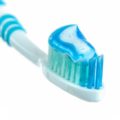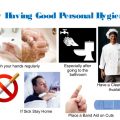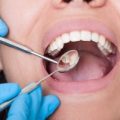Oral hygiene is an important component of health. Because of the important role the mouth plays in the digestion process. The mouth is home to millions of microorganism most of which constitute the normal flora of the buccal cavity. A good oral hygiene is essential for healthy gums, and teeth as well as the prevention of bad breath (Halitosis), gum infection and tooth decay.One of the major issues in oral hygiene is periodontal abscess which refers to the localized collection of abscess or pus within the tissues of the periodontium. Poor oral hygiene is not only detrimental to good selfies, they are also bad for overall health and well-being.Help your kids have a healthy smile by making dental hygiene for kids fun.The benefits of personal hygiene cannot be overemphasized, making brushing, flossing and dental check-ups a positive experience can help to keep your child excited about good oral care. You child will not only grow up with a beautiful smile, but also with healthy habits that can last a lifetime. Results from several studies have also established that a poor oral hygiene can increase the risk of some serious medical conditions which include;
- Cancer
Poor oral hygiene can lead to some forms of cancer. According to research, men who suffer from gum disease are 50% more likely to be diagnosed with cancer of the kidney or pancreas and 30% more likely to be diagnosed with cancer of the blood.
- Diabetic complications
Periodontal disease and Inflammation of the gums caused by poor oral hygiene practices can complicate the control of blood sugar and make diabetes symptoms worse.
- Respiratory tract infections
According to The Journal of Periodontology infections of the gum could lead pneumonia and other diseases of the lung.
- Cardiovascular disease
When bacteria enter the bloodstream as a result of the periodontal disease or inflammation of the gum, some travel through the blood vessels to the arteries which results in the hardening of the arteries leading to atherosclerosis. This condition narrows the arteries and increase the risk of heart attack or stroke.
- Dementia (Alzheimer’s disease)
Gingivitis occasioned by poor or improper oral hygiene can cause bacteria to enter the brain either through the nerve channels in the brain or via the bloodstream.
SEE: How To Get Rid Of Black Gums
Signs & Symptoms of Gum infection
- Swollen, red, tender or bleeding gums( note: it could be painless sometimes)
- A Receding Gum (moving away from the tooth)
- Persistent bad breath
- Persistent bad taste in mouth
- Loose teeth
- Visible pus or discoloration around the teeth and gums
Foods to Avoid/Moderate
1. Sugary food: They help build plaque. Examples: candies, sweets and chocolates
2. Highly Acidic Foods: They erode teeth enamel, leading to cavities and tooth decay, Examples: lemons, alcohol and coffee
3. Processed food & high energy food: They provide readily available glucose for bad bacteria to commence production of acid in the mouth. Examples: energy drinks
Good Oral Hygiene For Kids & Adults
Dental hygiene should begin when your child is a baby. Start using a soft child-size toothbrush around the age of 1 or 2. You should brush your child’s teeth with water at least twice a day. You also can add a small dab of toothpaste that doesn’t have fluoride in it.
Begin good dental care early. Start cleaning infants’ gums even before teeth appear. Child care providers should wipe infants’ gums after each feeding to remove germs. Encourage parents to clean infants’ gums at home and suggest that they begin using a small toothbrush without toothpaste when the first tooth appears.
Build on children’s early interest in brushing. Toddlers and infants are likely to express a lot of interest in the care of teeth. They love to watch adults and older children brush and floss their teeth. This early interest can lead to good dental habits later on. Build in tooth brushing as a regular part of the mealtime routine in child care. Set a good example by brushing your own teeth after meals.
Be sure each child has a personal toothbrush. Label the brush with the child’s name. Dentists generally recommend a small toothbrush with soft nylon bristles. Ask parents to replace worn brushes every three to four months. Store toothbrushes in a covered area out of children’s reach.
Wait until children are 2 or 3 years old to start fluoridated toothpaste. Until children are 2 or 3, child care providers can help them clean their teeth with water and a soft-bristled toothbrush. When children start using toothpaste after age 2 or 3, supervise brushing and make sure children use just a small smear on the brush. Children should spit out and not swallow excess toothpaste after brushing. Read: Sewer Backup Health risks
Avoid sharing the toothpaste tube. Children who use the same tube of toothpaste may spread germs.
ADULTS
Floss –Floss at least once a day.
Get regular dental cleanings- Your dentist can detect early gum disease symptoms if you see them on a regular basis.
Quit smoking- If you smoke you might be doing your teeth and gums more harm than good
Brush twice a day- Brush your teeth at least twice a day don’t forget your tongue while doing so
Note:Use fluoride toothpaste a therapeutic mouthwash or the 3 commonly used chewing sticks in Nigeria: Pako Ijebu (Massularia acuminata), Orin Ayan (Distemonanthus benthamianus) and Dogonyaro (Azadirachta indica) which have all been reported to have beneficial effect on gingival health and oral hygiene. See Best Dental Hygiene Schools
Public Health Nigeria an Interdisciplinary public health movement focused on health education, advancing fair public health policies, promoting fitness, healthy diets, responsible behavior, community health and general well-being.





